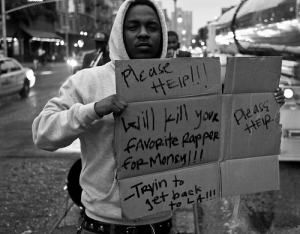It’s time to face the facts: the Gamergate situation is getting way out of hand.
For those of you who aren’t exactly aware of what Gamergate is, we’ll set the Wayback machine to August 2014, when the issues were first raised. The controversy arose out of concerns from traditional gamers who believed that socially conscious, artistic games were praised by video game media outlets simply because of their commentary instead of the mechanics and other elements they thought made a good game.
Although the debate began in a fairly harmless manner, things quickly took a turn for the worse as some internet users began to aggressively harass indie game developer Zoe Quinn, whose ex-boyfriend posted a blog entry that (incorrectly) accused her of cheating on him with a writer for Kotaku, a popular video game website, in exchange for a positive review for a game she developed called “Depression Quest”. The game was met with critical enthusiasm, but rubbed some gamers the wrong way due to its serious tone and lack of entertainment value.
The harassment Quinn and her family received was violent, vitriolic and hate-filled, eventually forcing her to leave her home out of fear for her life. (I would quote a few of these messages to help illustrate the point, but honestly, they’re too awful to print.)
As developers and media figures began to chime in and defend Quinn, the controversy, which came to be known as “Gamergate,” quickly transformed from a large discussion on journalistic ethics and video game culture into a series of angry and hostile attacks on those, who are mainly women, that speak against its supporters and their actions.
Anita Sarkeesian, a blogger who produces a series of videos that discusses the portrayal of women in the media, also received hate messages and death threats in response to her comments against Gamergate and a series of videos she posted exploring tropes of women in video games. She recently posted on Twitter that she had to cancel a public speaking event because of a series of bomb threats made the day of.
Same goes for Brianna Wu, an indie game developer and studio head. She and her husband who were also forced from their home after personal information, including their address, was released on the internet.
Those are just a few examples of misogynistic behavior towards women within the industry that we know of. The crazy thing is, there are probably many more that have happened out of the spotlight, and will continue to happen as long as the support for Gamergate continues to grow online.
Simply put, this is unacceptable. Disagreeing with someone’s opinion is one thing, but making unnecessarily hateful comments towards that same person is wrong. Telling anyone, no matter male or female, that you’ll rape, beat and murder them simply because they stood up for what they believed in is indecent and inhuman, no matter how you slice it.
The number of prominent figures in the gaming world who are beginning to speak up on behalf of those who have been negatively impacted by certain (not all) Gamergaters is beginning to rise, but so is the number of those who make the threats. It’s possible that the best way to handle this situation isn’t to fight against the aggressors. Maybe the best way is to not do or say anything at all, and let the trolls tire themselves out.
There are many ways this could all play out, but hopefully a solution is found before someone is actually hurt, or even worse, killed. In the mean time, we can learn from this and work harder to become better human beings to one another from this point on.








